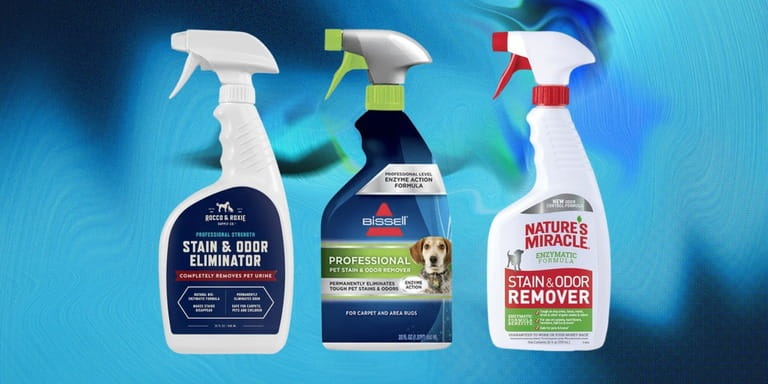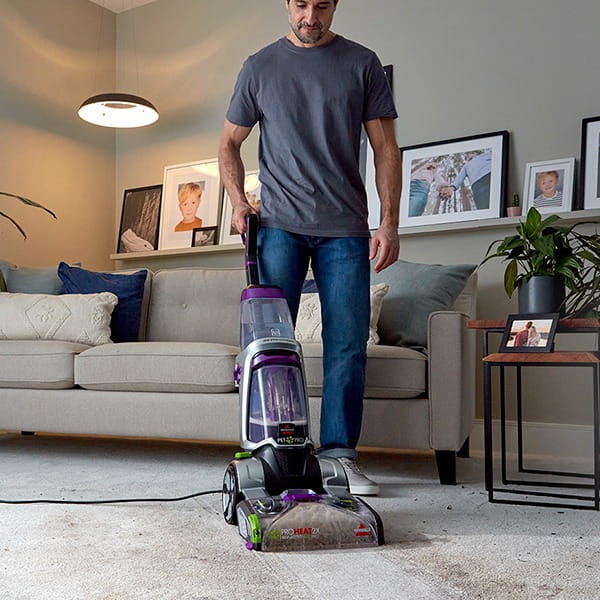As a dog owner, I know the struggle of battling pet odors all too well. My playful Labrador, Max, loves lounging on the couch and occasionally has accidents, leaving behind lingering smells.
After trying countless solutions over the years, I've finally found a few tricks that really work. If you're tired of dealing with pet odors and want a fresh-smelling home, let me share what's worked for me!
Apply an Enzymatic Cleaner

Enzymatic cleaners are designed to break down the proteins in pet urine, feces, or vomit, which are the main causes of the odor. These cleaners work at a molecular level, eliminating the source of the smell, not just masking it.
Deep Clean the Surface
Depending on the type of surface, you'll need different cleaning methods to ensure the odor is fully removed.
For Carpets and Rugs

Use a carpet cleaner or steam cleaner with a pet-specific cleaning solution to extract any remaining residue deep within the carpet fibers.
After using the cleaner, rinse the area with clean water to remove any leftover cleaning solution, and blot dry.
Baking soda

If you don't have a carpet cleaner, you can always count on baking soda — the go-to for tackling tough smells and stains. Pour baking soda on the affected odor area then rubbing it in with a rag or brush. Let it sit for around 30 minutes, then vacuum the area. Finally, clean the rest of the baking soda off the area with a damp cloth after vacuuming.
For Hard Floors (Tile, Hardwood, Vinyl):

Apply a enzymatic cleaner or vinegar solution. Wipe down the area with a mixture of 50% white vinegar and 50% water. Vinegar helps neutralize odors and disinfect the area. Avoid using too much water on hardwood floors to prevent damage.
Neutralize Remaining Odors
Baking Soda

Sprinkle baking soda over the cleaned area (especially on carpets or upholstery) and let it sit for several hours or overnight. Baking soda absorbs lingering odors. Afterward, vacuum it up.
Vinegar and essential oils

A mixture of vinegar and essential oils can help neutralize pet odors at a specific spot, but it may not completely "kill" the odor in all situations, especially if the odor is embedded deeply (such as in carpets or upholstery).
Vinegar is a natural deodorizer, and essential oils can add a pleasant scent while potentially offering some antimicrobial benefits.
Wash Pet Bedding and Accessories

Pet beds, blankets, and toys can harbor odors over time. Washing them regularly is crucial for maintaining a fresh-smelling home.
Wash pet bedding and removable covers in the washing machine using hot water and a pet-safe detergent. Add 1/2 cup of white vinegar to the rinse cycle to neutralize any odors.
Get Rid of Odor in the Air
Open windows

Opening windows can help get rid of some pet odors by improving air circulation and letting fresh air replace the stale, smelly indoor air. Try to open all the windows in your house every now and then to freshen things up, but make sure your indoor cats stay safely inside.
Use fans

Using fans can push bad smells of your pets out of the house through opened windows or vents. To disperse your pet's odor effectively, put fans in specific areas like near their bed or where he usually stays to play. This way, you can prevent the smell from becoming too concentrated in one spot.
Invest in a high-quality air purifier

Activated carbon filters in air purifiers can effectively eliminate unwanted odors, including those from pets. Plus, the HEPA filter in these devices removes up to 99.97% of pet hair and dust particles from the air, making them perfect for people with allergies.
Prevent Future Odors

To avoid recurring pet odors, take steps to prevent accidents or address them more quickly in the future.
Pet Training: Properly train or retrain your pet to go to the bathroom in designated areas.
Regular Cleaning: Regularly clean areas where your pet spends time, including vacuuming carpets, washing pet bedding, and wiping down hard surfaces.
Use Protective Barriers: Use pet-safe sprays that deter pets from marking certain areas, or consider protective covers for furniture and carpets if accidents are frequent.












